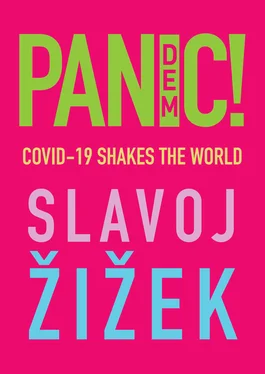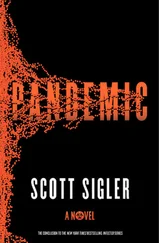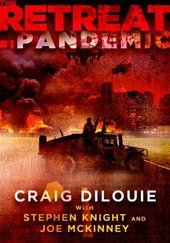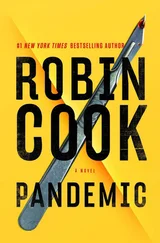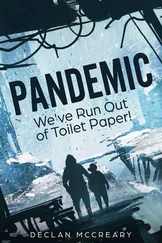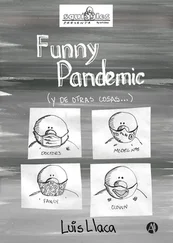1 Cover
2 Front Matter PANDEMIC! COVID-19 Shakes the World SLAVOJ ŽIŽEK polity
3 Introduction: Noli Me Tangere
4 1. We’re All in the Same Boat Now Notes
5 2. Why Are We Tired All the Time? Notes
6 3. Towards A Perfect Storm in Europe
7 4. Welcome to the Viral Desert Notes
8 5. The Five Stages of Epidemics
9 6. The Virus of Ideology
10 7. Calm Down and Panic! Notes
11 8. Monitor and Punish? Yes, Please! Notes
12 9. Is Barbarism With a Human Face Our Fate? Notes
13 10. Communism or Barbarism, as Simple as That! Notes
14 11. The Appointment in Samara: A New Use for Some Old Jokes Notes
15 Appendix: Two Helpful Letters from Friends
16 End User License Agreement
1 Cover
2 Contents
3 Begin Reading
1 iii
2 iv
3 v
4 1
5 2
6 3
7 4
8 5
9 7
10 8
11 9
12 10
13 11
14 12
15 13
16 14
17 15
18 17
19 19
20 20
21 21
22 22
23 23
24 24
25 25
26 26
27 27
28 29
29 31
30 32
31 33
32 34
33 35
34 36
35 37
36 39
37 40
38 41
39 42
40 43
41 44
42 45
43 46
44 47
45 49
46 50
47 51
48 52
49 53
50 55
51 56
52 57
53 58
54 59
55 61
56 63
57 64
58 65
59 66
60 67
61 68
62 69
63 70
64 71
65 73
66 74
67 75
68 76
69 77
70 78
71 79
72 80
73 81
74 83
75 85
76 86
77 87
78 88
79 89
80 90
81 91
82 92
83 93
84 94
85 95
86 97
87 98
88 99
89 100
90 101
91 102
92 103
93 104
94 105
95 107
96 109
97 110
98 111
99 112
100 113
101 114
102 115
103 116
104 117
105 118
106 119
107 120
108 121
109 122
110 123
111 124
112 125
113 126
114 127
115 129
116 130
117 131
118 132
119 133
120 134
121 135
122 136
123 137
124 138
PANDEMIC!
COVID-19
Shakes the World
SLAVOJ ŽIŽEK
polity
All royalties from sales of this book will be
donated to Médecins Sans Frontières.
This edition published by Polity Press, 2020
First published in the United States by OR Books LLC, New York, 2020
© Slavoj Žižek, 2020
All rights reserved. No part of this book may be reproduced or transmitted in any form or by any means, electronic or mechanical, including photocopy, recording, or any information storage retrieval system, without permission in writing from the publisher, except brief passages for review purposes.
978-1-5095-4612-1
For Michael Sorkin—I know he is no longer with us, but I refuse to believe it.
INTRODUCTION NOLI ME TANGERE
“Touch me not,” according to John 20:17, is what Jesus said to Mary Magdalene when she recognized him after his resurrection. How do I, an avowed Christian atheist, understand these words? First, I take them together with Christ’s answer to his disciple’s question as to how we will know that he is returned, resurrected. Christ says he will be there whenever there is love between his believers. He will be there not as a person to touch, but as the bond of love and solidarity between people—so, “do not touch me, touch and deal with other people in the spirit of love.”
Today, however, in the midst of the coronavirus epidemic, we are all bombarded precisely by calls not to touch others but to isolate ourselves, to maintain a proper corporeal distance. What does this mean for the injunction “touch me not?” Hands cannot reach the other person; it is only from within that we can approach one another—and the window onto “within” is our eyes. These days, when you meet someone close to you (or even a stranger) and maintain a proper distance, a deep look into the other’s eyes can disclose more than an intimate touch. In one of his youthful fragments, Hegel wrote:
The beloved is not opposed to us, he is one with our own being; we see us only in him, but then again he is not a we anymore—a riddle, a miracle [ ein Wunder ], one that we cannot grasp.
It is crucial not to read these two claims as opposed, as if the beloved is partially a “we,” part of myself, and partially a riddle. Is not the miracle of love that you are part of my identity precisely insofar as you remain a miracle that I cannot grasp, a riddle not only for me but also for yourself? To quote another well-known passage from young Hegel:
The human being is this night, this empty nothing, that contains everything in its simplicity—an unending wealth of many representations, images, of which none belongs to him—or which are not present. One catches sight of this night when one looks human beings in the eye.
No coronavirus can take this from us. So there is a hope that corporeal distancing will even strengthen the intensity of our link with others. It is only now, when I have to avoid many of those who are close to me, that I fully experience their presence, their importance to me.
I can already hear a cynic’s laughter at this point: OK, maybe we will get such moments of spiritual proximity, but how will this help us to deal with the ongoing catastrophe? Will we learn anything from it?
Hegel wrote that the only thing we can learn from history is that we learn nothing from history, so I doubt the epidemic will make us any wiser. The only thing that is clear is that the virus will shatter the very foundations of our lives, causing not only an immense amount of suffering but also economic havoc conceivably worse than the Great Recession. There is no return to normal, the new “normal” will have to be constructed on the ruins of our old lives, or we will find ourselves in a new barbarism whose signs are already clearly discernible. It will not be enough to treat the epidemic as an unfortunate accident, to get rid of its consequences and return to the smooth functioning of the old way of doing things, with perhaps some adjustments to our healthcare arrangements. We will have to raise the key question: What is wrong with our system that we were caught unprepared by the catastrophe despite scientists warning us about it for years?
1. WE’RE ALL IN THE SAME BOAT NOW
Li Wenliang, the doctor who first discovered the ongoing coronavirus epidemic and was censored by authorities, was an authentic hero of our time, something like the Chinese Chelsea Manning or Edward Snowden, so no wonder his death triggered widespread anger. The predictable reaction to how the Chinese state has dealt with the epidemic is best rendered by Hong Kong-based journalist Verna Yu’s comment, “If China valued free speech, there would be no coronavirus crisis. Unless Chinese citizens’ freedom of speech and other basic rights are respected, such crises will only happen again … Human rights in China may appear to have little to do with the rest of the world but as we have seen in this crisis, disaster could occur when China thwarts the freedoms of its citizens. Surely it is time the international community takes this issue more seriously.” 1
True, one can say that the whole functioning of the Chinese state apparatus runs against old Mao’s motto “Trust the people!” Rather the government runs on the premise that one should NOT trust the people: the people should be loved, protected, taken care of, controlled … but not trusted.
Читать дальше
